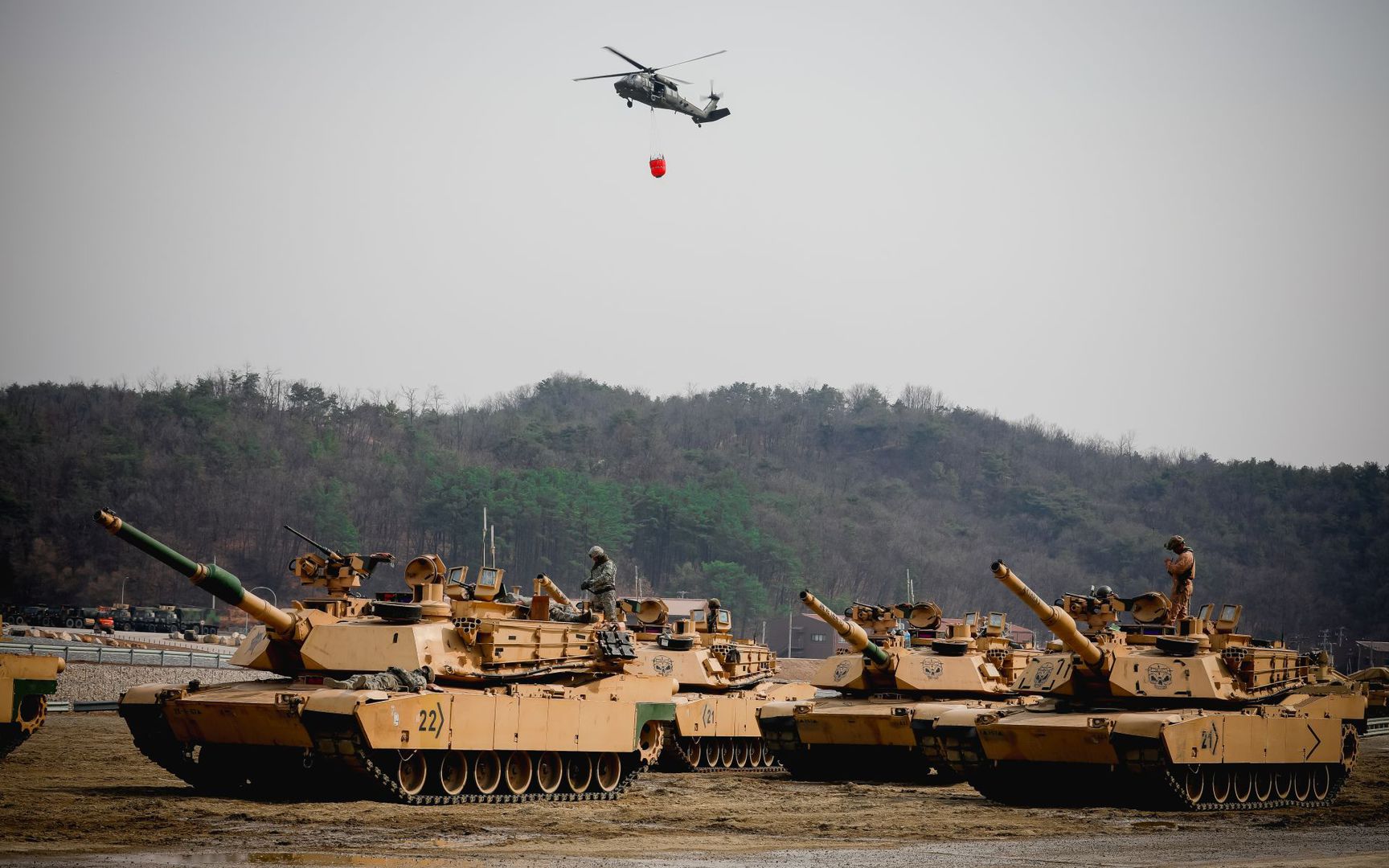Though the U.S.-South Korea alliance remains strong, South Korea must bear a more proportional share of the cost of maintaining its security, Defense Secretary Dr. Mark T. Esper said.
Esper hosted South Korean Defense Minister Jeong Kyeong-doo at the Pentagon today. DOD officials said the two leaders discussed a range of issues including the regional security environment, policy toward North Korea, transition of wartime operational control, and the special measures agreement between the United States and South Korea.
As the 70th anniversary of the start of the Korean War approaches, Esper said, the U.S. alliance with the Republic of Korea remains strong.
“The United States stands fully committed to the defense of the ROK,” he said. “Forged through years of combat and shared sacrifice, our alliance is ironclad and remains the linchpin of security, stability and prosperity on the Korean Peninsula and in the larger Indo-Pacific region. Our shared values, interests, and commitment to the rules-based international order form the foundation of an alliance that is as vital today as it was in the 1950s.”
But South Korea must contribute more to its own security, the secretary said.
“Shouldering the cost of the common defense cannot fall disproportionately to the American taxpayer,” Esper said. “As such, we must find a more sustainable and equitable means of sharing the costs of our combined defense with the Republic of Korea. As a global economic powerhouse and an equal partner in the preservation of peace in the peninsula, South Korea can and should contribute more to its defense.”
Esper noted that the United States is asking many security partners around the globe to step up and contribute more to mutually beneficial partnerships. In particular, he pointed to U.S. relationships in Europe.
“Increased burden-sharing is a top priority for the United States across our alliances,” he said. “We consistently urge NATO allies to contribute more to our shared defense, and we ask the same of South Korea and other partners.”
Esper said he and the South Korean defense minister also discussed continued efforts toward the common objective of the complete denuclearization of North Korea and the importance of the trilateral relationship among the United States, South Korea and Japan. That relationship includes high-level policy consultations, shared military exercise and information sharing; and progress toward meeting the conditions needed for the eventual transition of operational control to a South Korean commander.
Jeong said that the operational control transition will happen in a systematic manner “based not on timing, but on conditions.” Certification of those conditions, he said, will be assessed jointly by South Korea and the United States “in a transparent and credible manner.”
Afterward, he said, guiding principles agreed upon during the 50th Republic of Korea-United States Security Consultative Meeting will ensure a continued strong defense of South Korea. The alliance and its posture will only strengthen as a result of continued presence of U.S. Forces and the guaranteed role of the United Nations Command, he said.










